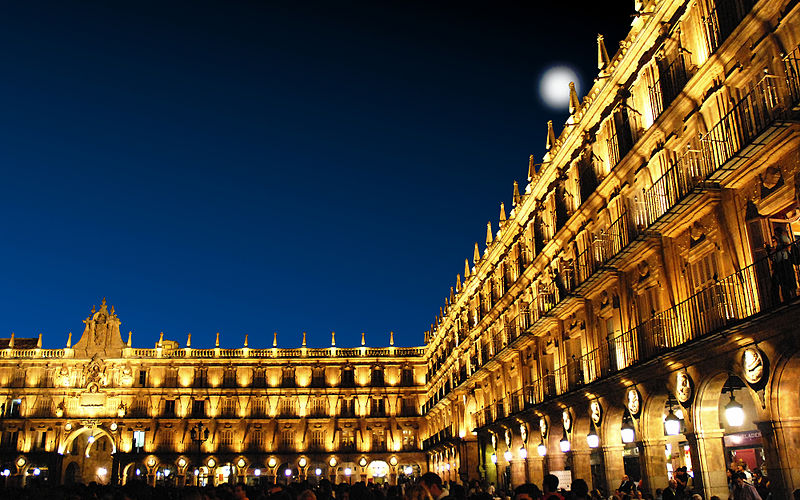Plaza Mayor in Salamanca
Time: 1729 - 1756
Style: Spanish Baroque
Artist: Alberto de Churriguera
Material and technique: Sandstone and stone from Villamayor. It's an irregular square surrounded by buildings
 |
| City Hall |
At the front of the plaza we find the City Hall, one of the most important icons of the site. It was designed by Andrés Garcia de Quiñones in a baroque style which match with the plaza.It is lined by restaurants, ice cream parlors, tourist shops, jewelry stores and a pharmacy along its perimeter except in front of the city hall. It is considered the heart of Salamanca and is widely regarded as one of the most beautiful plazas in Spain
Its iconographic program consist of an ensemble of "medallones". These are more than eighty eight small portraits of famous Spanish personalities which represent the history of Spain.
Formal analysis
Size: As said before, it forms an irregular square, where none of its sides measure the same. The facade of the City Hall is 82'60 m long, the west, 81'6 m, one more meter than the oriental facade, and the other one 75'59 m. To sum up, the plaza has an are of 6400 square meters, excluding the colomnade.
"The surrender of Breda" or "Las Lanzas"
Time: 1634-1635
Style: Baroque
Artist: Diego Velázquez
Material: Oil on canvas
The picture shows the capture of Breda after its siege, one of the major Spanish successes in the latter stages of the Eighty Years' War. The Spanish army was led by one of the best strategist under his service, Ambrosio de Spinola. The city was the seat of the Orange family, so its oficial was Nassau-Orange. The strategy of Spinola is regarded as a masterpiece. However, the heroic defense defense led to honorable terms of defeat, so Spinola let Duch army to form outsidethe walls of the city.



No comments:
Post a Comment
Note: Only a member of this blog may post a comment.